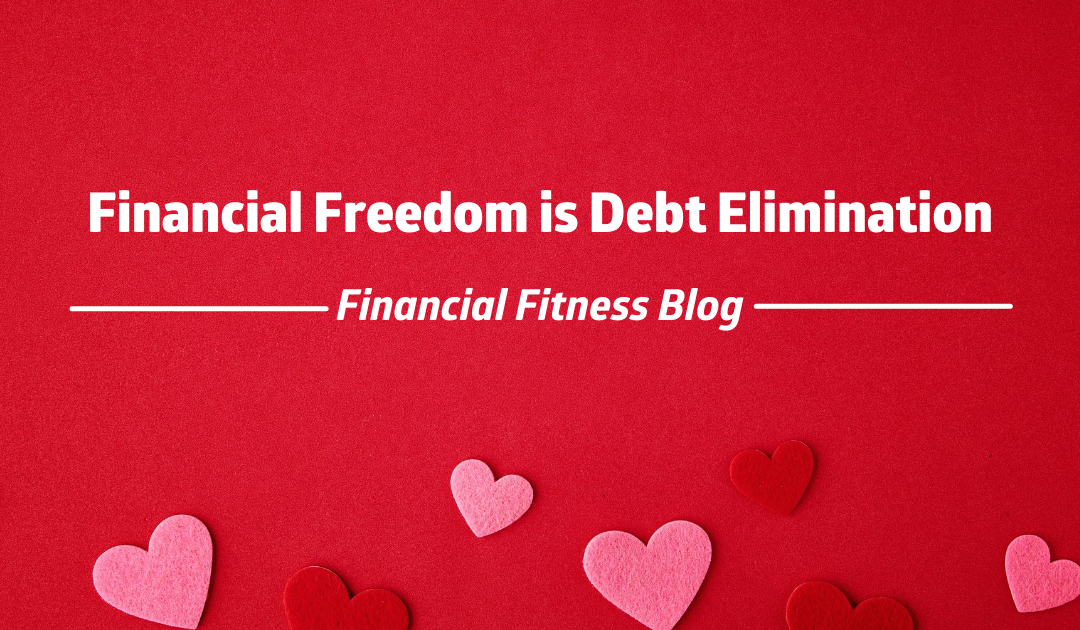By: Charlestien Harris
How is your relationship with money coming along so far? It can be pretty scary at first and a somewhat challenging commitment, but it is all very possible. One of the most important traits to consider when trying to reach your goal of financial freedom is decision-making. Since you have decided to tackle paying down your debt, let’s talk about ways to use debt elimination to re-establish that loving relationship with your finances.
The first step in the process is finding out exactly how much you owe your creditors. Be totally honest with yourself.
Knowing your debt-to-income ratio is very important. To figure the ratio, you add up your monthly debts and divide them by your monthly income. If your total monthly credit payments are more than 20% of your monthly income, you need to work on reducing your debt load.
The next step is to decide how much you want to pay each creditor and how long it will take to pay each debt down to a manageable amount. Try to set up a plan to be out of debt within two to five years. Several methods can be used to eliminate your debt effectively. Here are a few to get you started:
- The Snow Ball Method involves paying off the bills with the lowest balance due. Once you pay those accounts off, consider using that money to add to your regular payment amount to pay off your other debt.
- The High Interest Method involves paying those debts with the highest interest rate first. This is because interest charges can be very costly, so paying off those debts with the highest interest rates can free more of your money to pay down other debt.
- The Most Important Method involves paying those debts that are most important to keep your family safe or keep your credit rating stable. An example would be to pay your car note to prevent a repossession or your mortgage to prevent a foreclosure. This method will depend on what you consider important.
- The Percentage Method is when you choose to pay a percentage of each bill due to make a payment to the creditor in good faith. This method is most effective for credit cards. One should remember that making the minimum payment due is better than missing a payment.
- The New Plan Method may require you to work with your creditors to set up a new payment plan that fits your budget and is agreeable to both.
Finally, Debt Consolidation should only be considered when you think your money issues are under control. Realize you may pay less each month but more in the long run because the payments are paid over an extended period.
Moreover, being loving and caring matters, but they’re not always enough in a relationship. You also need shared values, life goals, and compatibility as well. In my first article, I mentioned that you need to know how you feel about money and how it makes you feel. If you become overextended, it may take personal effort, along with some love, caring, and self-control to get your current debt situation under control.
Some additional tips to consider:
- Review your budget and look for ways to reduce your expenses.
- Use that extra money to pay more than the minimum amount due each month.
- Use a debit card instead of a credit card.
- Finally, pay your bills on time to avoid costly late fees.
Despite your best intentions, you still might fall into debt. If so, don’t hesitate to reach out for help. HUD-approved counseling agencies have qualified counselors who can assist you with achieving your goal of financial freedom. We are a HUD-approved counseling agency, and we have five HUD-Certified Housing Counselors available to help you assess your finances and get you on the right track. You can also find the nearest HUD-approved counseling agency in your area by visiting www.hud.gov/findacounselor.
Financial freedom is a goal you can reach, as long as you have a solid game plan and the discipline to stick with it! I hope you fall more and more in love with your money each week as February moves right along. For more information, you can email me at Charlestien.harris@southernpartners.org or call me at 662-624-5776. Until next week—Stay financially fit!

